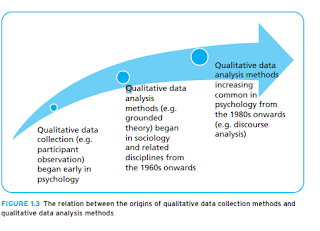
Critical discourse analysis is most frequently described as an approach to reading qualitative data, rather than a method. This is an important distinction, given the primacy of theory in CDA and mediates against the 'methodolotry' common to other types of research.
There is a good description of discourse analysis from the Uni of Texas site HERE
some excerpts..
Discourse Analysis does not provide a tangible answer to problems based on scientific research, but it enables access to the ontological and epistemological assumptions behind a project, a statement, a method of research
Discourse Analysis will enable to reveal the hidden motivations behind a text or behind the choice of a particular method of research to interpret that text.
Expressed in today's more trendy vocabulary, Critical or Discourse Analysis is nothing more than a deconstructive reading and interpretation of a problem or text
Discourse Analysis will, thus, not provide absolute answers to a specific problem, but enable us to understand the conditions behind a specific "problem"
Discourse Analysis is meant to provide a higher awareness of the hidden motivations in others and ourselves and, therefore, enable us to solve concrete problems - not by providing unequivocal answers, but by making us ask ontological and epistemological questions.
The lack of commitment to method can, however, be very frustrating for the new researcher, struggling to write up their method and operationalise or at least gain some clarity regarding their their analysis.
I have found a paper below where the authors i believe describe their 'method' fairly well and have cut and paste the relevant sections...more as a means by which I can sort this out for myself than anything.
1. Parents’Constructions of the Problem’ during Assessment and Diagnosis of their Child for an Autistic Spectrum Disorder EVRINOMY AVDI CHRISTINE GRIFFIN SUSAN BROUGH
Solihull Health Authority, UK
Journal of Health Psychology Vol 5(2) 241–254; 012239
Eleven semi-structured interviews were carried out by one of the researchers (EA) with three sets
of parents who were undergoing assessment of their sons for ‘communication difficulties’ at a
child development centre
A broad interview schedule with thematic headings was used as a general guide for the interviews.
Open-ended questions and circular questioning techniques were employed; the questions
were addressed to both parents and were aimed at eliciting detailed elaboration of their
views and encouraging the expression of multiple positions. The interviews took place
in the participants’ home and lasted between 90 minutes and 3 hours.
The analysis was carried out over a period of 8 months and broadly followed the stages outlined
by Billig (1997).
1. Following interviewing and transcription, the initial stage of the analysis consisted
of familiarizing ourselves with the transcripts and beginning to develop ‘hunches’ about
the accounts regarding constructions of the‘problem’.
2. The next stage involved selection of all extracts that referred to parents’ understandings of their child’s problem and, through repeated readings, aiming to discern patterns both within and across accounts and to hypothesize about their function(s).
3. Then followed a lengthy and recursive process of coding of the transcript material to key themes, which were produced through repeated readings and were informed by the research questions and relevant literature. The analysis aimed to identify key discourses in the parents’ talk, and to investigate how these related to one another and how they were used in constructions of the ‘problem’.
In this article we focus on the most dominant themes in the participants’ accounts. The parents
in this study were found to employ three main discourses in their talk about their child’s ‘problem’,
which we refer to as the discourse of normal development, the medical discourse and
the disability discourse. The first incorporate constructions about ‘normal’ development and
the parents’ role in promoting this. The medical discourse locates the child in relation to a
specific disease or condition, assumed to have a knowable cause, treatment and prognosis. The
disability discourse has associations of developmental delay and deficiency, constructs the child
as having a more permanent status as ‘other’ and raises issues concerned with the management of
differentness and stigma.
It is interesting to compare Discourse Analysis with Narrative Inquiry.....both result in big picture themes..the first reveals socially constructed discourses/meta-narratives..the second reveals typologies of personal journeys through life...of course there can be interplay between the two...








